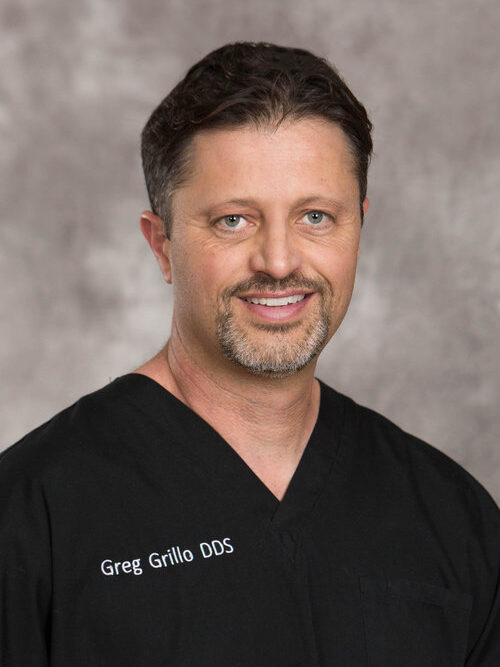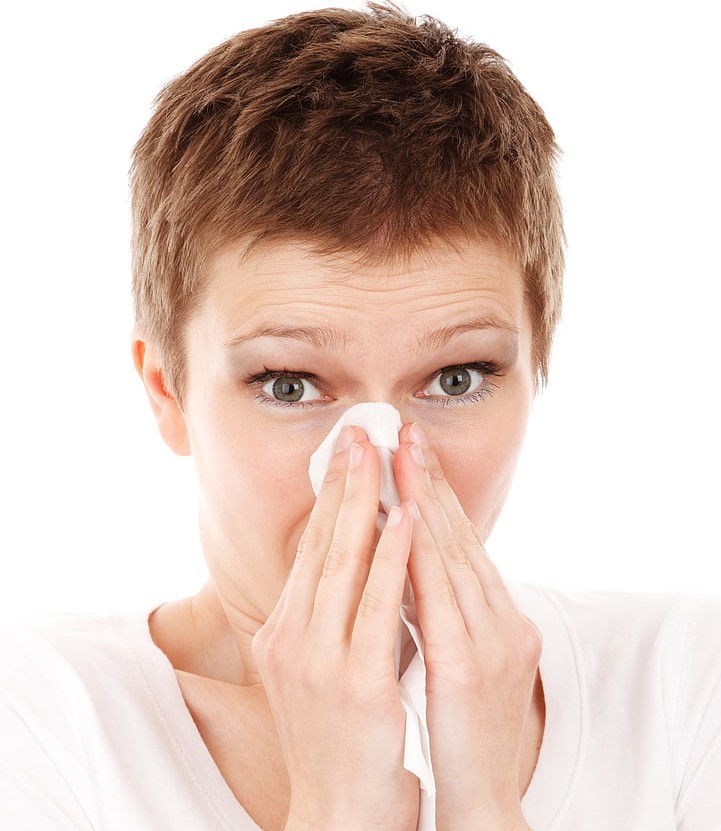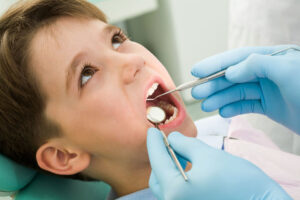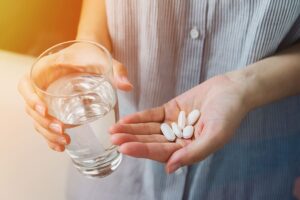If you have ever had your teeth hurt when sick with the common cold, the flu, or a sinus infection, you’re not alone. It is a common symptom. Here’s why it happens and what you can do about it.
Is it normal for teeth to ache when sick?
It’s normal and very common for teeth to hurt when sick with the common cold, the flu, or a sinus infection. It occurs due to sinus inflammation. The upper teeth hurt when sick because they sit directly below the maxillary sinuses which are near the nose. Inflammation of the maxillary sinuses can therefore irritate the nerves in the teeth which are very sensitive to pressure and pain. The tooth pain and pressure can be made worse by coughing and sneezing.
Are aching teeth a symptom of the flu?
Aching teeth can be a symptom of the flu or they can be from another cause. If your teeth hurt when sick and the toothache goes away when you recover, then your tooth pain is probably related to the flu.
Additionally, when your teeth hurt when sick, a dull pressure and pain is present in all the teeth below the sinuses. Another telltale sign is the presence of pain and pressure in your face and eyes as well.
On the other hand, if your toothache is limited to one tooth on one side and there is redness or swelling around the tooth, it is more likely to be from a dental issue. Pain from an infected tooth tends to be pulsating or throbbing in nature. Also, it does not lessen in severity even when your flu symptoms improve.
Do I need to see the dentist if my teeth hurt when sick?
You do not need to see the dentist immediately if your tooth pain or pressure developed along with other cold, flu, or sinus symptoms. However, if you have severe toothache in the absence of a flu-like illness or sinus inflammation, make an appointment to see your dentist as soon as possible. Something else may be going on that is causing your teeth to hurt and needs to be treated.
Do your teeth hurt when sick with Covid?
Tooth pain is not a commonly reported symptom of COVID-19. If you have tooth pain and are currently positive for a COVID infection, call your dental office. Your tooth pain may not be from COVID and could instead be due to causes such as tooth decay, dental infection, or dental abscess, which will need to be treated.
However, keep in mind that you will likely need to wait until you recover from COVID before you can go into the dental clinic. This is to avoid putting your dentist and other staff and patients at risk of contracting COVID. Your dentist may be able to offer you an online consult in the meantime. If you want to find a dentist nearby who offers this service, call Express Dentist, and we may be able to help you.
In the meantime, get answers to some of the most commonly asked questions about dental care and COVID.
How can I stop my teeth from hurting when I have a cold?
If your teeth hurt when sick with a cold, these tips should provide some relief:
- Drink through a straw to avoid triggering teeth sensitivity.
- Lick cold desserts like ice cream and sorbet instead of biting into them, for the same reason as above.
- Breathe through your nose.
- Wear a scarf over your mouth if you’re outdoors in cold weather so that your teeth are not exposed to cold wind.
- Don’t forget to practice good oral hygiene by brushing your teeth twice a day and flossing every day.
How do you relieve sinus pressure in your teeth?
If your teeth hurt when sick with a sinus infection, you will get relief when the sinus inflammation clears. Most of the time, sinus infections clear on their own in a few days. However, sometimes, you need to take antibiotics.
In the meantime, there are several things you can do to stay comfortable:
- Stay well hydrated. This helps to thin the mucus in your sinuses and clear it out, thus relieving congestion and pressure.
- Use decongestants and expectorants to combat sinus pressure. This will help relieve dental symptoms arising from your sinuses.
- Get plenty of rest and give your body a chance to recover from the illness.
Note: The US Food and Drug Administration warns that improper use of neti pots and other nasal irrigation devices can increase your risk of sinus infection.
About the author

Dr. Greg Grillo
Dr. Greg Grillo DDS studied at the University of Washington where he received a bachelors degree with Honors and later attended dental school on the same campus. Following school Dr. Greg served in the United States Navy as a dental officer. During this time he received advanced training in specialty areas of dentistry while also treating families of members of the military.
As well as sharing valuable information on dentistry and oral health, Dr. Greg remains a practicing dentist to this day. He works with families in the Okanogan Valley where he lives with his wife and three children.
- Dr. Greg Grillo
- Dr. Greg Grillo
- Dr. Greg Grillo
- Dr. Greg Grillo
- Dr. Greg Grillo
- Dr. Greg Grillo
- Dr. Greg Grillo
- Dr. Greg Grillo
- Dr. Greg Grillo
- Dr. Greg Grillo
- Dr. Greg Grillo
- Dr. Greg Grillo
- Dr. Greg Grillo
- Dr. Greg Grillo
- Dr. Greg Grillo
- Dr. Greg Grillo
- Dr. Greg Grillo
- Dr. Greg Grillo
- Dr. Greg Grillo
- Dr. Greg Grillo
- Dr. Greg Grillo
- Dr. Greg Grillo
- Dr. Greg Grillo
- Dr. Greg Grillo
- Dr. Greg Grillo
- Dr. Greg Grillo
- Dr. Greg Grillo
- Dr. Greg Grillo
- Dr. Greg Grillo
- Dr. Greg Grillo
- Dr. Greg Grillo
- Dr. Greg Grillo
- Dr. Greg Grillo
- Dr. Greg Grillo
- Dr. Greg Grillo
- Dr. Greg Grillo
- Dr. Greg Grillo
- Dr. Greg Grillo
- Dr. Greg Grillo
- Dr. Greg Grillo
- Dr. Greg Grillo
- Dr. Greg Grillo
- Dr. Greg Grillo
- Dr. Greg Grillo
- Dr. Greg Grillo
- Dr. Greg Grillo
- Dr. Greg Grillo
- Dr. Greg Grillo
- Dr. Greg Grillo
- Dr. Greg Grillo
- Dr. Greg Grillo
- Dr. Greg Grillo
- Dr. Greg Grillo
- Dr. Greg Grillo
- Dr. Greg Grillo
- Dr. Greg Grillo
- Dr. Greg Grillo
- Dr. Greg Grillo
- Dr. Greg Grillo
- Dr. Greg Grillo
- Dr. Greg Grillo
- Dr. Greg Grillo
- Dr. Greg Grillo
- Dr. Greg Grillo
- Dr. Greg Grillo
- Dr. Greg Grillo
- Dr. Greg Grillo
- Dr. Greg Grillo
- Dr. Greg Grillo
- Dr. Greg Grillo
- Dr. Greg Grillo
- Dr. Greg Grillo
- Dr. Greg Grillo
- Dr. Greg Grillo
- Dr. Greg Grillo
- Dr. Greg Grillo
- Dr. Greg Grillo
- Dr. Greg Grillo
- Dr. Greg Grillo
- Dr. Greg Grillo
- Dr. Greg Grillo
- Dr. Greg Grillo
- Dr. Greg Grillo
- Dr. Greg Grillo
- Dr. Greg Grillo
- Dr. Greg Grillo
- Dr. Greg Grillo
- Dr. Greg Grillo
- Dr. Greg Grillo
- Dr. Greg Grillo
- Dr. Greg Grillo




